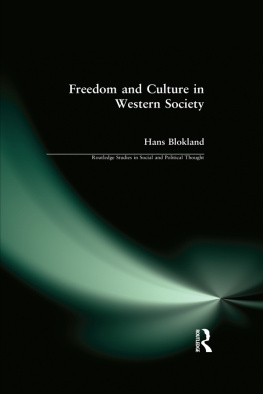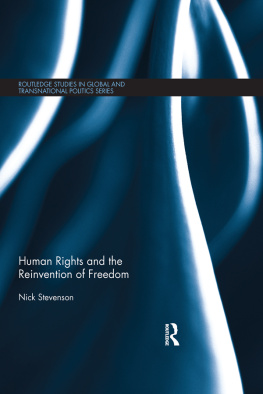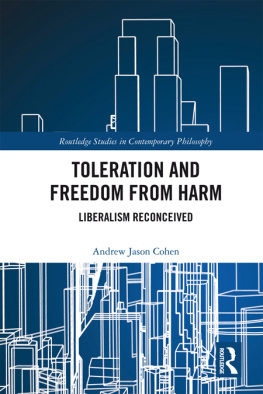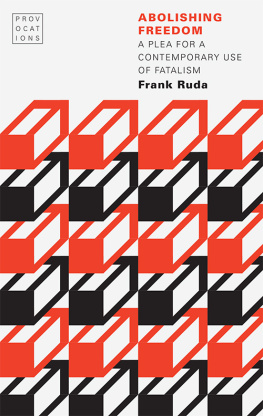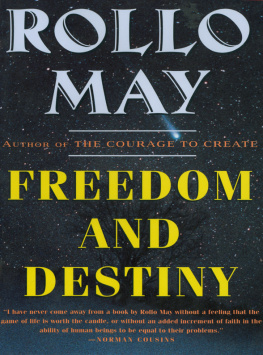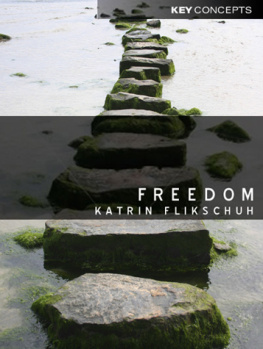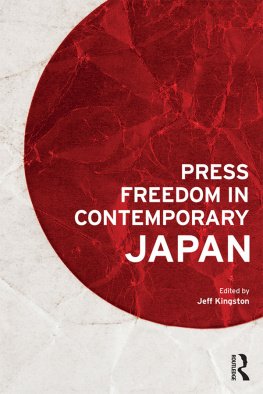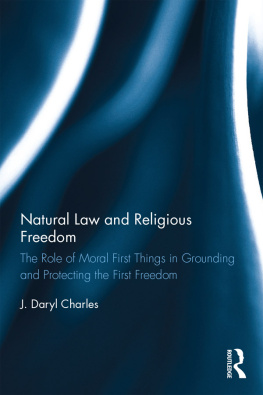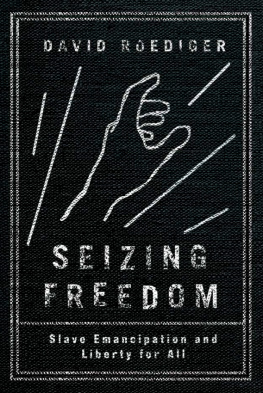Freedom and culture in Western society
What does freedom mean? Does everyone in Western liberal democracies enjoy maximum freedom? Has freedom become a dogma, the meaning and justification of which has been forgotten? Critically examining the conceptions of freedom of some of the leading contemporary philosophers from Isaiah Berlin to Charles Taylor, Hans Blokland explores the value and significance that freedom has acquired in our political consciousness. He looks specifically at:
Positive and Negative Freedom
Emancipation and Paternalism
Freedom and Cultural Politics
On a theoretical level, Hans Blokland shows that it is possible to have a reasonable discussion on the meaning of contested concepts such as freedom and autonomy. Crucially, he investigates how political communities could enlarge the capacity of their citizens to master their own lives, without unacceptable interference in their private realm. Because the ability to participate in culture is regarded as one of the important conditions for individual freedom, in this context particular attention is devoted to the legitimation, as well as the opportunities and bounds, of a cultural policy. In this manner the book not only addresses the question what we can know about values like freedom and autonomy, but also of what we can do to foster their realisation.
First published in Dutch, this book was awarded the Pieter de la Court prize by the Royal Netherlands Academy of Arts and Sciences and the Political Science prize by the Netherlands Political Science Association. It has been extensively updated to include material from the United States, Great Britain, France and Sweden as well as from The Netherlands.
Hans Blokland works as a Fellow of the Royal Netherlands Academy of Arts and Sciences at Erasmus University, Rotterdam.
ROUTLEDGE STUDIES IN SOCIAL
AND POLITICAL THOUGHT
Hayek and After
Hayekian Liberalism as a Research Programme
Jeremy Shearmur
Conflicts in Social Science
Edited by Anton van Harskamp
Political Thought of Andr Gorz
Adrian Little
Corruption, Capitalism and Democracy
John Girling
Freedom and Culture in Western Society
Hans Blokland
First published 1991 by BOOM of Amsterdam.
2 Park Square, Milton Park, Abingdon, Oxon OX 14 4RN
52 Vanderbilt Avenue, New York, NY 10017
Routledge is an imprint of the Taylor & Francis Group, an informa business
First issued in paperback 2016
1991, 1995 BOOM of Amsterdam.
English language translation 1997 Routledge
Typeset in Times by Routledge
All rights reserved. No part of this book may be reprinted or reproduced or utilised in any form or by any electronic, mechanical, or other means, now known or hereafter invented, including photocopying and recording, or in any information storage or retrieval system, without permission in writing from the publishers.
Notice:
Product or corporate names may be trademarks or registered trademarks, and are used only for identification and explanation without intent to infringe.
British Library Cataloguing in Publication Data
A catalogue record for this book is available from the British Library
Library of Congress Cataloging in Publication Data
A catalogue record for this book has been requested
ISBN 978-0-415-15000-2 (hbk)
ISBN 978-1-138-97463-0 (pbk)
It may be that, without the pressure of social forces, political ideas are stillborn: what is certain is that these forces, unless they clothe themselves in ideas, remain blind and undirected.
(Isaiah Berlin)
A nation is not civilized because a handful of its members are successful in acquiring large sums of money and in persuading their fellows that a catastrophe will occur if they do not acquire it What matters to a society is less what it owns than what it is and how it uses its possessions. It is civilized in so far as its conduct is guided by a just appreciation of spiritual ends, in so far as it uses its material resources to promote the dignity and refinement of the individual human beings who compose it.
(Richard Tawney)
As our traditional objectives are gradually fulfilled, and society becomes more social-democratic with the passing of the old injustices, we shall turn our attention increasingly to other, and in the long run more important, spheres of personal freedom, happiness, and cultural endeavour: the cultivation of leisure, beauty, grace, gaiety, excitement, and of all the proper pursuits, whether elevated, vulgar, or eccentric, which contribute to the varied fabric of a full private and family life.
We do not want to enter the age of abundance, only to find that we have lost the values which might teach us how to enjoy it.
(Anthony Crosland)
Everyone knows what freedom means. Until you ask him or her what this meaning is. In Western liberal democracies everyone also knows that the citizens in these political systems enjoy maximum freedom, until you ask them to justify this conviction. Freedom has become a dogma. This value forms the basis of our civilization and of our political consciousness, but often we have forgotten its meaning and justification. Also, in our world it is considered so evident that citizens are free that enlargement of their freedom is seen as superfluous. We regard a policy to this end as a threat to, rather than as a stimulus of, this value.
In this book, the significance and value which the concept of freedom could have in our society is analysed. Also studied is how political communities could enlarge the capacity of their citizens to be masters of their own lives, without unacceptable interference in their private realm. Because being able to participate in culture is regarded as one of the important conditions for individual freedom, in this context particular attention is devoted to the opportunities and boundaries of a cultural policy.
In books the discussions are generally on various theoretical levels. So too in this book. On the most concrete level, its thesis is that in present-day Western liberal democracies there is great social inequality in the ability to acquire and exercise freedom and that the opportunities offered by these political systems for developing this value, are insufficiently exploited.
On a higher theoretical level, the book tries to demonstrate that it is possible (although we will never arrive at an objective or universal conclusion) to have a reasonable and rational discussion on normative issues in which essentially contested concepts like freedom, autonomy, emancipation, paternalism or cultural participation play a pivotal role. Hence, a central purpose of the book is to counter relativism, a relativism which, under the influence of behaviourism and postmodernism, has become exceptionally strong in contemporary social and political science and in our society.
The book does not only deal with the question of what we can know about the meaning of concepts like freedom or autonomy, but also of what we can do. In this case, it is not just trying to develop a plausible conception of freedom, the practical question is also addressed of how political communities could enlarge the capacity of their citizens to be masters of their own lives. In this manner it is attempted to bridge the gap between social and political philosophy on the one hand, and empirical social and political science on the other. Generally, both disciplinary streams hardly ever meet. As a consequence, the results are often either normative theories without practical meaning or empirical theories without depth and direction.

